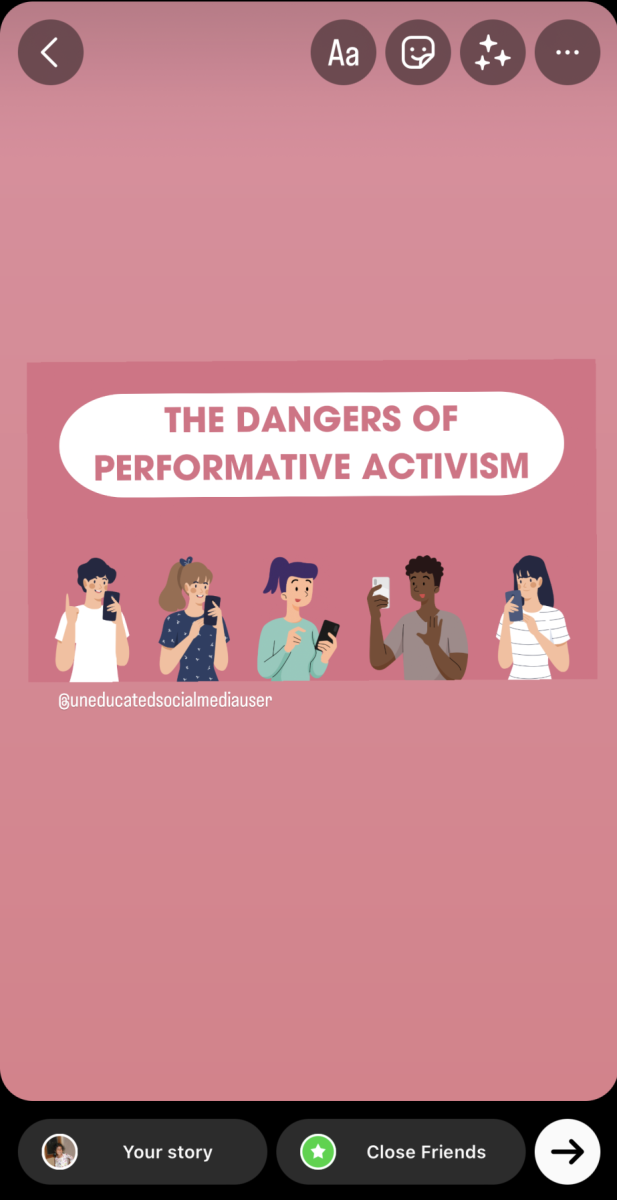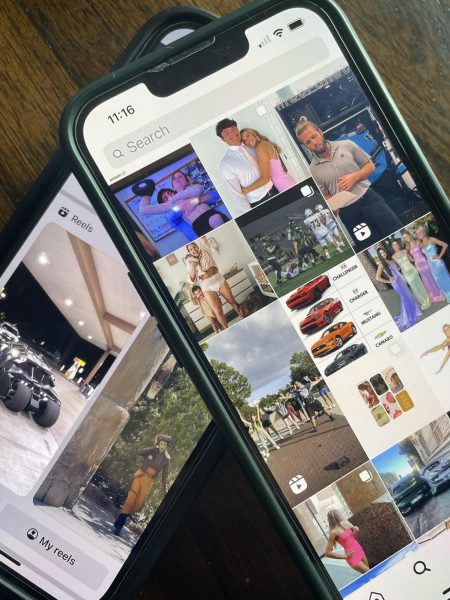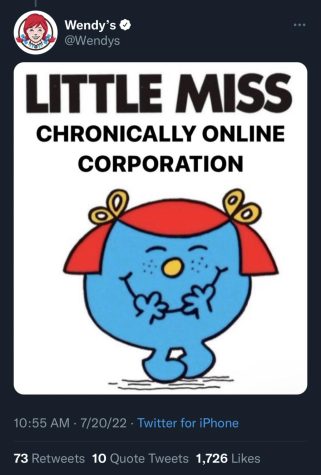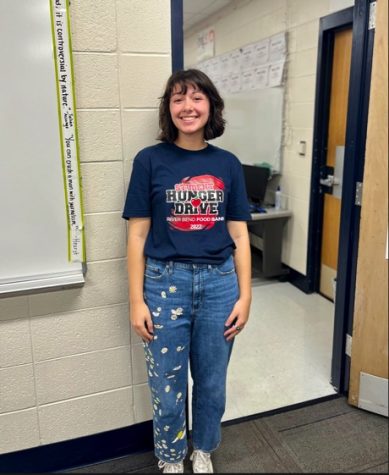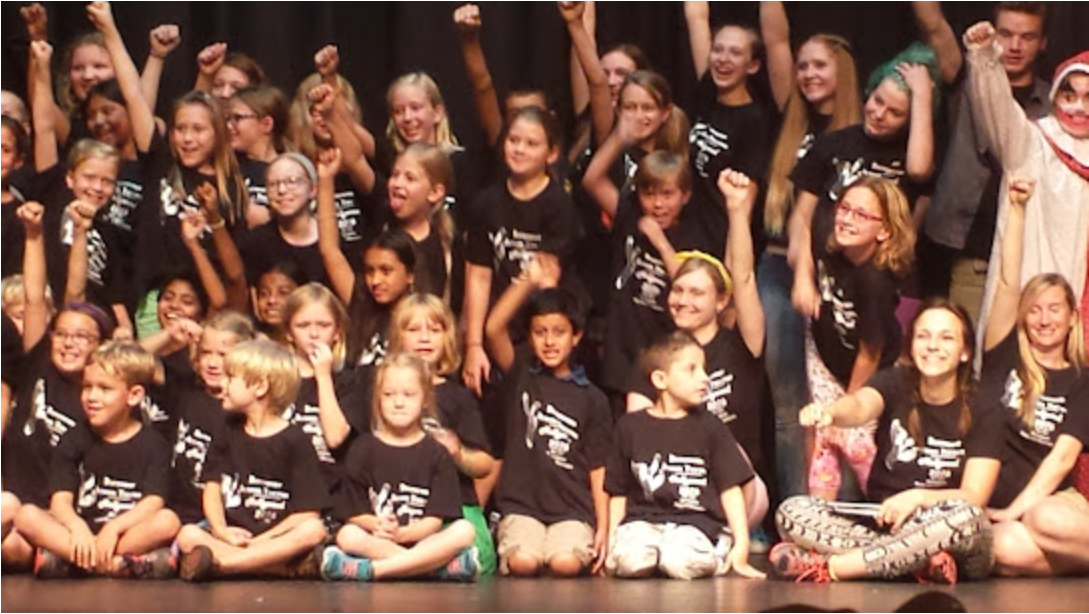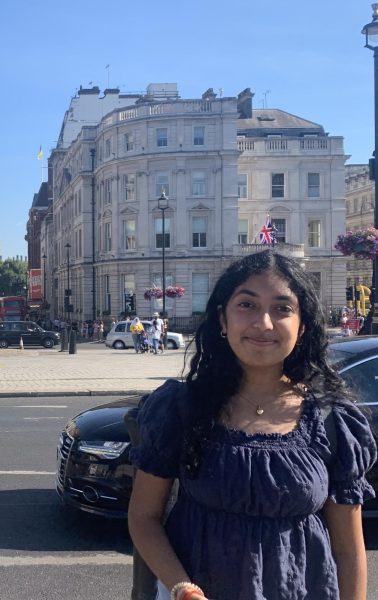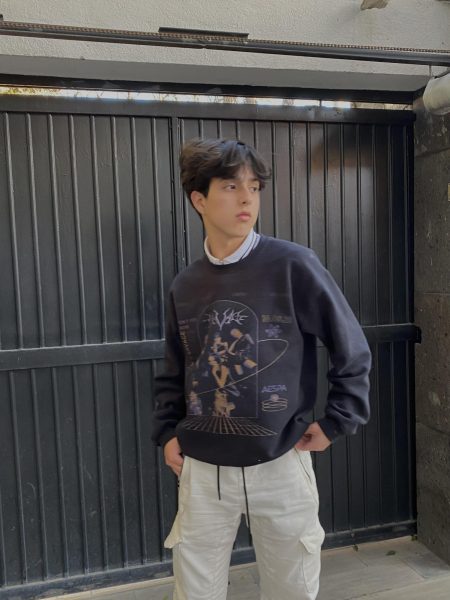Loud and uneducated: Social media becoming more popular and less sincere
Priya Suresh
“Pray for Israel.”
This statement has circulated in the media following devastating terrorist attacks in Israel organized by Hamas. Social media has become flooded with infographics and posts about the terrors going on in the Middle East. Celebrities and average people are all contributing their input, but truly how helpful is their activism?
The topic of the Israel-Palestine conflict has only recently taken over social media but has been going on since 1948 when the United Nations divided Palestine into two separate Arab and Jewish states. So what has just begun to be widely spread through Western media, has actually been going on for over 80 years.
As people continue to post their support towards Israel, the horrors Palestine has faced for years under the oppressive nature of the Israeli government become undermined.
This poses the question, how many people recently posting about this conflict are truly knowledgeable about the situation, beyond what has happened in the past few weeks?
The main issue is not people sending prayers to Israel, which is understandable based on the terrors they are facing, but the fact they feel compelled to post about a conflict they don’t know the entirety of.
Recently, it has become apparent political activism is vital to how someone is viewed online. People are expected to speak up about their opinions or they are accused of being uncaring of current events. This creates a dilemma which forces people to post and be vocal about issues they are often not educated on or don’t have interest in.
Not only are people expected to post, but they are also expected to take sides. This causes an unneeded disconnect between people on social media, and if someone doesn’t take a side they are accused of not caring. This has resulted in social media becoming a very hostile environment to talk about politics.
People should not feel pressured into having opinions on things they don’t know about, but forcing people into that hostile environment has become a social expectation.
Junior Swetha Narmeta has noticed this trend on social media and expressed her opinion on it. “People look at what other people have to say about politics and sometimes they internalize this which can be harmful if what’s being posted is untrue or misinformed,” she said.
Infographics have become a large contributor to activism on social media, with their alluring artwork and flashy headlines, they often attract a lot of attention. Many people see these flashy designs, agree with the headlines, and click repost without a second thought to the credibility of what they are posting.
Participating in performative activism results in many social media users to believe they have gained moral high ground over people who choose to stay silent on certain issues. But if there is no thought behind a post, it can’t be helpful in spreading awareness. If the one posting is not educated, the post will inevitably fail to educate others.
English teacher Jenni Levora teaches a unit on media literacy every year, and understands the harmful impact the lack of critical thinking has when it comes to politics. “It just feels like everyone is so clearly separated in the social media world,” she said. “People need to be able to critically think about the news they are consuming before they start posting and taking sides, not being able to do so is what causes this great divide that we are experiencing right now.”
The importance of media literacy has become overshadowed by the importance of social media presence, which has completely changed the sincerity of activism as a whole. Activism without proper education on the topic is no better than staying silent about the issue.
Activism can be such a positive thing, and keeping the public educated and informed is fundamental in today’s society, but performative activism on social media is slowly changing the political atmosphere as a whole.
It is important that the idea of silence becomes more acceptable to social media users. It is okay to stay silent on issues they don’t know about, and it is okay to not be educated on every single social issue in the world.
 Social media response to the war in Israel and Palestine loses sight of what humanity should stand for
Social media response to the war in Israel and Palestine loses sight of what humanity should stand for
Margil Sanchez Carmona
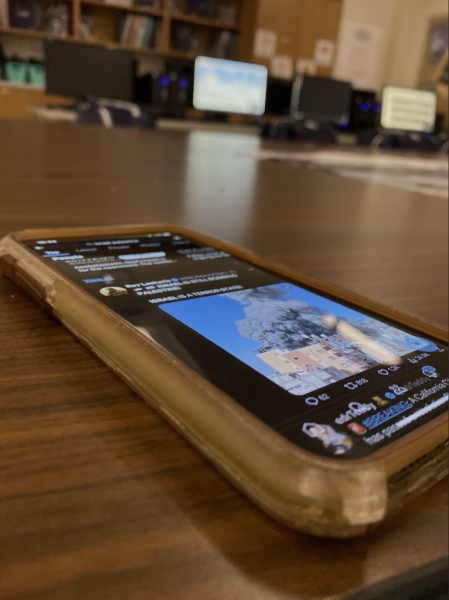
Social media opens users to a world of interaction, communication and human connections that transcend both time and place. But what was meant to be a medium for connection has quickly become one of the most influential factors of societal division, as the online model disconnects users from basic human qualities of understanding.
Not long after opening any social media app, users may uncover an underground fighting ring of commenting users. Everyone wants to be right, and the comment section gives them a place to prove it as extensively as they would like–and hidden behind a screen–usually without any risk or repercussions.
The infamous ‘Twitter stan wars,’ are a perfect example of this. The rules are simple: pick a side and launch an attack. They are merely a pattern of mindless arguments of pop culture usually consisting of niche, online vocabulary and modes of communication which are not generally transferable to the real world. In this context, the arguments themselves may be mostly harmless, as they are both inapplicable and ineffective outside the digital realm. However, this behavior is contagious, and like a plague spreads to other realms of human interaction.
“Pick a side and launch an attack” has also become the predominant structure for online political discourse. And in this context, it is anything but harmless. The practice is at best ineffective, and at worst a political weapon.
Attacking the opposing side, which is known rhetorically as an ad hominem, is never effective, as it fails to make a point, and it emotionally disconnects the party from their opponent’s argument. By insulting a moral or other characteristic of their opponent, the commenter fails to implement the argument they were advocating for. Their opponent will then gain no new perspective, and the toxic remarks will not make them very motivated to seek one. Ad hominems essentially decentralize the issue being argued.
In a publication on digital moral outrage by Molly J. Crockett, a psychology professor at Princeton University, internet toxicity is traced to an empathic disconnect between users. Essentially, the digital model reduces the opposing side to a profile picture with words on a screen rather than a human being capable of feeling emotion and going through their own evolving process of learning.
This inability to view the opposing side’s human characteristics makes it that much harder to reach understanding or at least find equal footing–which is not necessarily middle ground–eventually leading to abnormal levels of polarization.
Joe Youngbauer, who teaches AP United States Government and Politics, links social media to the radicalization of political parties. “People have avenues and different ways to continue to express and see and think in a more narrow way and possibly, in a more radical way that I think continues to pull sides apart from each other,” Youngbauer said.
Modern politics in the media often feed off this power of polarization, using it to influence elections and policy. However, the democratic model of government means that even if politics run on the fuel of media polarization, it is only because the voters do too.
“People want more of the ‘Horse-race journalism’–they want the more adversarial, the mud-slinging. But what about the policy? What about the information? What about the details? What about the truth? Does that get lost?” Youngbauer questioned, acknowledging the people’s role in the decreased thoughtful discussion over facts and policy.
It seems, however, that social media polarization has reached an ultimate breaking point, having been a key instigator of the Jan. 6 capitol attack in 2021. This makes it clear: polarizing argumentative practices on social media can have detrimental effects on national unity and people-centered government. And this is where people’s response to recent developments involving the conflict between Israel and Palestine comes into play.
The ongoing conflict was elevated in early October when Hamas, the militant group in control of the Gaza Strip, fired missiles against Israel. Western news outlets were flooded with videos of innocent Israeli citizens being kidnapped or held hostage, and headlines raged of Hamas’s violence.
With any war comes mutual violence and destruction, but it is important to note the state of Israel’s history of violent and oppressive handling of Occupied Palestinian Territory. And while the violence by Hamas may be too great to be justified, the root of the conflict is essentially a fight between the people and an oppressive government–a fight that even pro-Palestine social media users seem to lose sight of.
As users and celebrities alike began to post about the conflict on social media, people rushed to make enemies out of each other. Take for example, the strongly-worded, at times maybe immature, Instagram post made by actor Noah Schnapp on Oct. 11. His over-simplified and provocative statement that, “you either stand with Israel, or you stand with terrorism,” inspired a fury of social media backlash.
To some extent, the backlash is justified. His post included some clearly aggressive language and failed to separate the people of Israel from the injustices of the government. But does this mean he is an ignorant, immoral, evil human? No.
What many people fail to acknowledge when fighting back against celebrities or any user on social media is that behind that post is a human being.
Social media users were outraged that Western media outlets seemed to bring more empathy and attention towards affected Israelis than Palestinians, acknowledging a prevalent problem of loaded reporting. Yet when a user seems to be misinformed by those same media outlets, the media outlets are no longer the enemy, it is the user.
What is missing from social media discourse that makes it almost impossible for actual discussion to occur is what is often called “the charity principle.”
“The charity principle is the idea that we assume the best-case scenario when we hear an argument that we don’t agree with. Instead of assuming that it is an extreme position, we ask ourselves, ‘what is the most reasonable thing that this person might mean by their argument. We try to give them the benefit of the doubt,” explained Dr. Lynne Lundberg, who teaches the charity principle as part of the curriculum for AP Lang–an argument-based course.
Applying the charity principle to Schnapp’s post means acknowledging the clouded flurry of emotions he might be feeling watching his community suffering on television. It means not assuming that his subtle call for Palestinian self-determination was not a performative plug, but maybe a genuine stance. Through this, one finds that it becomes much less stressful and more understanding to argue with the charity principle in mind.
That is hard to do for many users, as there is an excitement to turning against users for their choice of words or misinformed opinions. But in doing so, people lose sight of the root of the conflict–the fight for peaceful democratic government. And in any conflict against an oppressive government, in-fighting between people, even outside of that government’s jurisdiction, creates a very significant distraction from the actions of the oppressor.
And the Israeli government knows this.
The official Instagram account of the state of Israel did something completely out of the ordinary for a government-run account: participate in social media in-fighting. In response to a story by model and influencer Gigi Hadid–which was a well-worded and clear stance condemning all violence and expressing support for the power of the people–the state posted a very strongly-worded reply questioning her morality.
The sole fact that the state is turning to social media to antagonize opponents of their regime shows the appeal of social media paradigms and behaviors in the spread of propaganda and the division of people.
People must remember that foreign policy can be greatly influenced by public opinion. As social media users keep arguing without any charity or sense of empathy for other users, the public will remain divided, and the government will keep funding a political war.
People are not each other’s enemy. The people of Palestine are not responsible for the loss of innocent life in Israel, and the people of Israel are not responsible for the loss of innocent Palestinian lives. This is a fight between a people and an institution, and all people ever want is peace.









